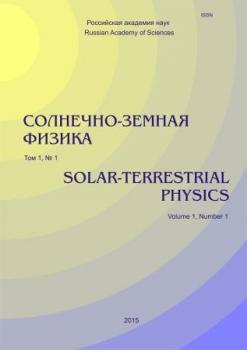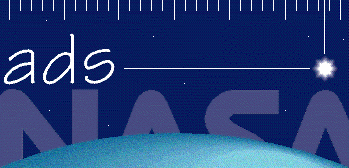Moscow, Russian Federation
Borok, Russian Federation
from 01.01.2008 until now
Borok, Russian Federation
The article addresses the problem of the connection of earthquakes with geomagnetic phenomena. We have carried out an experimental study using a method based, firstly, on the separation of periods of geomagnetic activity into extremely quiet and disturbed, and, secondly, on the description of seismic activity with an index called the global daily magnitude (GDM). By analyzing the NEIC earthquake catalog of the US Geological Survey over a 20-year period from 1980 to 1999, we have shown that the planetary activity of earthquakes under extremely quiet geomagnetic conditions is noticeably higher than under disturbed conditions. The detected tendency for seismic activity to increase in extremely quiet periods of geomagnetic activity has indirectly been confirmed by the analysis of 35 earthquakes with magnitude 8 and higher, which occurred on Earth from 1980 to 2019. We have found that in extremely quiet geomagnetic conditions, the probability of the occurrence of strong earthquakes is noticeably higher. The result qualitatively confirms the assumption of a change in the regime of seismic activity due to the influence of alternating magnetic fields on the ductility of rocks.
seismology, geomagnetism, Gutenberg-Richter law, magnetic storms, magnetoplasticity, earthquake ensemble, statistical sum, entropy
1. Atmospheric and Ionospheric Electromagnetic Phenomena Associated with Earthquakes. Tokyo, Terra Scientific Publishing Company, 1999, 996 p.
2. Bauer L.A. Magnetograph records of earthquakes with special reference to the San Francisco earthquake of April 18, 1906. Terrestrial Magnetism and Atmospheric Electricity. 1906, vol. XI, pp. 135-144. DOI:https://doi.org/10.1029/TE011i003p00135.
3. Buchachenko A.L. Microwave stimulation of dislocations and the magnetic control of the earthquake core. Physics-Uspekhi. 2019, vol. 62, no. 1, pp. 46-53. DOI:https://doi.org/10.3367/UFNe. 2018.03.038301.
4. Chetyrkin E.M., Kalikhman I.L. Veroyatnost’ i statistika [Probability and Statistics]. Moscow, Financy i statistika Publ., 1982, 319 p. (In Russian).
5. Davison Ch. The Founders of Seismology. Cambridge, University Press, 1927, pp. 203-223.
6. Eleman F. The response of magnetic instruments to earthquake waves. J. Geomag. Geoelectr. 1966, vol. 18, no. l, pp. 43-72. DOI:https://doi.org/10.5636/jgg.18.43.
7. Fainberg E.B., Avagimov A.A., Zeigarnik V.A., Vasil’eva T.A. Generation of heat flows in the Earth's interior by global geomagnetic storms. Izvestiya, Physics of the Solid Earth. 2004, vol. 40, no. 4, pp. 315-322.
8. Guglielmi A.V. Ponderomotive forces in the crust and magnetosphere of the Earth. Fizika Zemli [Izvestiya, Physics of the Solid Earth]. 1992, no. 7, pp. 35-39. (In Russian).
9. Guglielmi A.V. Elastomagnetic waves in a porous medium. Physica Scripta. 1992, vol. 46, pp. 433-434.
10. Guglielmi A.V. Ultra-low-frequency electromagnetic waves in the Earth’s crust and magnetosphere. Physics-Uspekhi. 2007, vol. 50, no. 12, pp. 1197-1216. DOI: 10.1070/ PU2007v050n12ABEH006413.
11. Guglielmi A.V. Omori's law: a note on the history of geophysics. Physics-Uspekhi. 2017, vol. 60, no. 3, pp. 319-324. DOI:https://doi.org/10.3367/UFNe.2017.01.038039.
12. Guglielmi A.V. History of formation of the seismoelectrodynamics. Nauka i tekhnologicheskie razrabotki [Science and Technological Developments]. 2019, vol. 98, no. 1, pp. 5-20. [Special issue “Methodological Aspects of the Application of Electromagnetic Methods in Geophysical Research”]. DOI:https://doi.org/10.21455/std2019.1-1. (In Russian).
13. Guglielmi A.V. On the relationship between earthquakes and geomagnetic disturbances. Geofizicheskie issledovaniya [Geophys. Res.]. 2020, vol. 21, no. 2, pp. 79-84. DOI:https://doi.org/10.21455/gr2020.2-6. (In Russian).
14. Guglielmi A.V., Klain B.I. Global magnitude of the earthquakes. Arxiv. 2019. arXiv:1909.00879v1. https://arxiv.org/ abs/1909.00879v1. (accessed June 6, 2020).
15. Guglielmi A.V., Klain B.I. Effect of the Sun on Earth’s seismicity. Solar-Terr. Phys. 2020, vol. 6, no. 1, pp. 89-92. DOI:https://doi.org/10.12737/stp-61202010.
16. Guglielmi A.V., Zavyalov A.D. The Omori law: The 150-year birthday jubilee of Fusakichi Omori. J. Volcanolog. Seismol. 2018, vol. 12, no. 5 pp. 353-358. DOI: 10.1134/ S0742046318050044.
17. Hattori K. ULF Geomagnetic changes associated with large earthquakes. TAO. 2004, vol. 15, no. 3, pp. 329-360.
18. Kalashnikov A.G., Kapitsa S.P. Magnetic susceptibility of rocks at elastic stresses. Doklady Akademii nauk SSSR [Doklady of the Academy of Sciences of the USSR]. 1952, vol. 86, no. 3, pp. 521-523. (In Russian).
19. Kasahara K. Mekhanika zemletryasenii [Earthquake Mechanics]. Moscow, Mir Publ., 1985, 264 p. (In Russian). (English edition: Kasahara K. Earthquake Mechanics. Cambridge University Press, 1981. 284 p.)
20. Kurazhkovskaya N.A. Global disturbance of Earth’s magnetosphere and its connection with space weather. Solar-Terr. Phys. 2020, vol. 1, no. 1, pp. 41-49. DOI:https://doi.org/10.12737/stp-61202005.
21. Mascart M. On magnetic effects of earthquakes. C.R. Acad. Sci. Paris, 1887, vol. CLV, pp. 607-608. (In French).
22. Mogi K. Earthquake Prediction. Tokio, Academic Press, 1985, 355 p.
23. Nagata T. Basic magnetic properties of rocks under the effect of mechanical stresses. Tectonophysics. 1970, vol. 9, no. 2-3, pp. 167-195.
24. Orlov A.P. Zemletryaseniya i ikh sootnosheniya s drugimi yavleniyami prirody [Earthquakes and Their Relationships with Other Natural Phenomena]. Kazan, 1887, 170 p. (In Russian).
25. Sobisevich L.E., Kanonidi K.K., Sobisevich A.L. Observations of ultra-low-frequency geomagnetic disturbances reflecting the processes of the preparation and development of tsunamigenic earthquakes. Doklady. Earth Sciences. 2010, vol. 435, pp. 627-632. DOI:https://doi.org/10.1134/S1028334X10120160.
26. Sobolev G.A. Osnovy prognoza zemletryasenii [Fundamentals of Earthquake Prediction]. Moscow, Nauka Publ., 1993, 312 p. (In Russian).
27. Sobolev G.A., Zakrzhevskaya N.A., Kharin E.P. On the relation between seismicity and magnetic storms. Izvestiya, Physics of the Solid Earth. 2001, vol. 37, no. 11, pp. 917-927.
28. Sobolev G.A., Zakrzhevskaya N.A., Migunov I.N., Sobolev D.G., Boiko A.N. Effect of magnetic storms on low-frequency seismic noise. Izvestiya, Physics of the Solid Earth. 2020, vol. 56, no. 3, pp. 291-315.
29. Strakhov V.N., Savin M.G. On the management of seismic activity. Geofizicheskii Zhurnal [Geophysical Journal]. 2013, vol. 35, no. 6, pp. 3-9. (In Russian).
30. Tarasov N.T. Influence of strong electromagnetic fields on the seismotectonic strain rate. Doklady Earth Sciences. 2010, vol. 433, Part 2, pp. 1088-1091. DOI:https://doi.org/10.1134/S1028334X 10080210.
31. Van der Varden B.L. Matematicheskaya statistika [Mathematical Statistics]. Moscow, Izdatel’stvo inostrannoi literatury, 1960, 434 p. (In Russian). (English edition: Van der Waerden B.L. Mathematical Statistics. Springer-Verlag Berlin Heidelberg, 1969, 371 p.)
32. URL: http://swdcwww.kugi.kyoto-u.ac.jp/index.html (accessed January 30, 2020)
33. URL: https://earthquake.usgs.gov/earthquakes (accessed March 12, 2020).


















